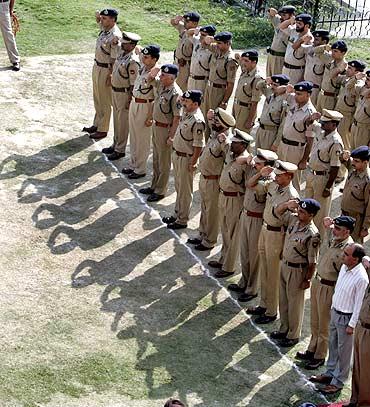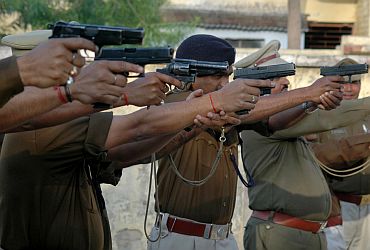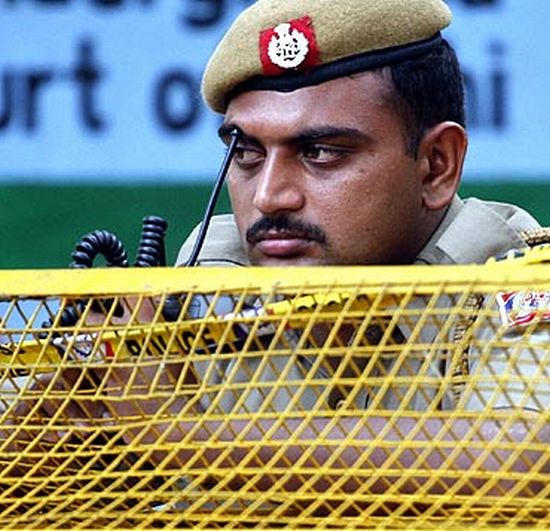 | « Back to article | Print this article |
Stop criticising the police; citizens need to step up
People in India need to view policing as a service, like any other service in society that must be valued by those who receive it for it to survive, feels Somik Raha
The Indian police are routinely criticised for giving in to political pressure or falling prey to gender bias when registering cases involving violence against women. While we have all heard of cases involving both, what if there were some other factors that explain police apathy? First, there is no political interference when the police don't know the accused, and still avoid filing a first information report. Second, gender insensitivity sounds plausible, until we make the shocking discovery that the police simply don't like filing FIRs, regardless of the type of case. This is because they are accountable for action taken on the FIR to a magistrate, and that increases their workload. To verify, simply ask someone you know who has ever submitted a written police complaint and you might learn that FIRs are almost never filed without pressure, and most complainants just give up.
It is tempting to insist that the police must file an FIR for every written complaint. That would result in the policing system breaking down immediately -- for there just wouldn't be people and time to do high-quality police work on every case that comes in. To remedy this, we have to look at the bigger picture and attempt to find the root cause of the problem. Perhaps it is that those receiving policing services do not think of these as services to be valued, but as a right. That puts the police in an impossible situation -- being grossly underpaid, underappreciated and overworked, and still expected to put themselves in harm's way for others, while also effecting deep inner transformations that should have happened yesterday.
Click NEXT to read further...
Private-public mechanism of police services
Using child psychology, our attitudes are very similar to those children who believe that it is their right to have all their needs addressed by their parents, and are upset when their parents don't have enough money or time. The same children, when abroad to study, stop complaining and start stepping up to stand on their own feet. They suddenly discover that they can deal with their own problems. What if we could get rid of our paternalistic expectations from the state, and start stepping up? We would need to view policing as a service, like any other service in society that must be valued by those who receive it for it to survive.
Such a view would open the doors to entrepreneurship and, if anything, Indians have demonstrated that they are second to none in entrepreneurial acumen. A big shift like this raises two questions. First, are there models from other societies where people who intrinsically value dignity and public safety have stepped up to create locally funded values-driven police departments? Second, would such models have legal standing in India?
The answer to both questions is yes, and there are two broad models. The first is that of Stanford University, which funds its police department composed of officers deputised by the sheriff in the county's public police department. Stanford's police department is remarkable in its strong emphasis on values, treating all people with whom they come in contact as clients, even those they arrest. To ensure that officers treat people fairly, video cameras in police cars go off whenever someone is pulled over. A microphone on the officer's body records the conversation, so any allegations of ill-treatment can be promptly investigated.
Although the university funds the police, it cannot access any police records without following due judicial process that is available to all. This private-public mechanism is already legal in India according to Section 13 of the Police Act, which stipulates that individuals can request for police services and pay for them.
The request must be authorised by a magistrate and the police officers deputised must work under the direction of a police functionary, such as an inspector general, deputy inspector general of police, assistant inspector general of police or district superintendent.
Click NEXT to read further...
Private policing
The second model is based on citizen's arrest rights, whereby individuals have the right to apprehend law-breakers. Canada's Intelligarde agency is a private policing company that is entirely premised on these rights. The agency is hired by neighbourhoods and businesses. When there is a disturbance, the agency responds quickly, prevents a situation from getting out of control, and even makes citizen arrests if necessary. Those arrested are handed over to the public police with evidence, thus reducing the public policing burden.
This is also legal in India, according to Sections 37, 38, 39 and 43 of the Criminal Procedure Code. Section 37 authorises individuals to assist magistrates or police officers in executing an arrest. Section 38 authorises individuals to execute warrants if the person against whom the warrant is drawn is in the vicinity. By extension, it is legal for private agencies to link up to warrant databases, which should not be secret. Section 39 authorises individuals to share information with the police on offences. Section 43 goes the furthest, with 43.1 literally giving individuals the right to arrest law-breakers and hand over the arrested people to the police as soon as possible.
These two ideas can open the gates for entrepreneurship and bring in competition. If neighbourhoods are not happy with one organisation's effectiveness, they may give the next year's policing contract to a different organisation. A question may be raised on equity and how poorer sections of society can utilise such models. First, the so-called poorer sections of society are already bearing the incidence of indirect taxes whenever they touch the market. Second, the rest of society is paying taxes partly to support those who need help. The government can make their tax allocation for public safety transparent and give it directly to neighbourhoods in the form of a voucher that can only be encashed by a voluntary police organisation, either in the deputised or in the citizen's arrest model.
The deputisation model and the citizen's arrest models can greatly reduce the burden on public police. Neither model will work if the core values of public safety and dignity are not upheld. But if they are, we may have an approach worth trying.
TOP photo features of the week
Click on MORE to see another set of PHOTO features...




